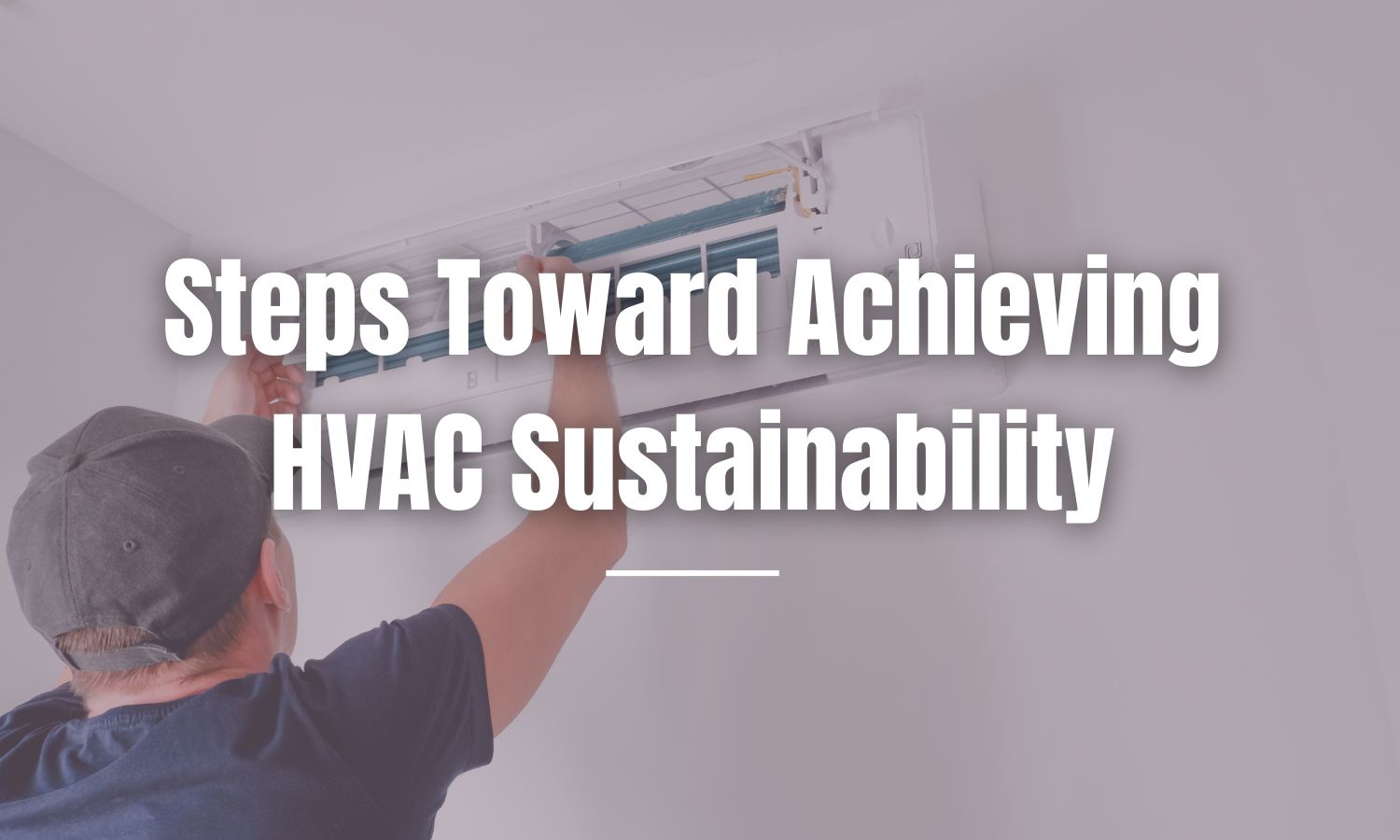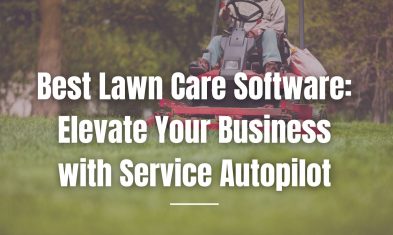HVAC sustainability is no longer just a buzzword; it’s a critical focus for businesses across all industries. Embracing greener practices not only benefits the planet but also creates new opportunities to attract eco-conscious customers, improve operational efficiency and stay ahead of evolving regulations.
HVAC sustainability is the way forward and businesses that adopt eco-friendly strategies can establish themselves as leaders in their communities.
In this blog, we’ll explore:
- What HVAC sustainability means and why it matters
- The benefits of sustainable practices for your business
- Specific steps you can take to achieve HVAC sustainability
- How tools like FieldEdge can help you integrate green solutions into your operations
Let’s take a closer look at how your HVAC company can move toward a greener future.
What Is HVAC Sustainability?
HVAC sustainability refers to practices, technologies and strategies that reduce the environmental impact of heating, ventilation and air conditioning systems. This includes improving energy efficiency, minimizing waste and promoting the use of eco-friendly products.
Sustainability is essential in HVAC because:
- The industry significantly contributes to energy consumption and greenhouse gas emissions.
- Customers increasingly demand green solutions to reduce their carbon footprint.
- Governments and local agencies are tightening regulations around energy use and refrigerants.
By prioritizing HVAC sustainability, your business can meet these demands while reaping the benefits of being a responsible and forward-thinking service provider.
Benefits of HVAC Sustainability for Your Business
Sustainable practices aren’t just good for the environment—they’re good for business too. Here’s how:
1. Attract More Customers
Eco-conscious homeowners and businesses are looking for HVAC companies that offer green solutions. Marketing your commitment to sustainability can set you apart from competitors.
2. Save Money Over Time
Energy-efficient tools and processes reduce your operating costs. For example:
- High-efficiency equipment uses less power, cutting energy bills.
- Smart scheduling and route optimization (using tools like FieldEdge) lower fuel consumption.
- Performing regular maintenance on your own equipment ensures it operates efficiently, reducing wear and unnecessary energy use.
3. Stay Ahead of Regulations
Compliance with energy efficiency and refrigerant regulations is non-negotiable. Adopting sustainable practices now helps you avoid penalties and future-proof your business.
4. Build a Stronger Reputation
Sustainability shows that you care about your community and the planet. This builds trust and strengthens your brand as a leader in the HVAC industry.
Steps to Achieve HVAC Sustainability
Implementing sustainable practices in your HVAC business doesn’t have to be overwhelming. Here are actionable steps you can take:
1. Offer Energy-Efficient Equipment
Upgrade your product offerings to include energy-efficient HVAC systems, such as:
- High-SEER (Seasonal Energy Efficiency Ratio) air conditioners.
- Heat pumps, which are more energy-efficient than traditional heating systems.
- Smart thermostats that optimize energy use based on customer preferences.
2. Transition to Eco-Friendly Refrigerants
The phaseout of HFC (hydrofluorocarbon) refrigerants is underway, with alternatives like R-32 and R-454B becoming more common. Stay ahead by offering refrigerants that meet regulatory standards and reduce environmental impact.
3. Implement Sustainable Service Practices
Make your daily operations more sustainable by:
- Reducing paper use with digital invoices and service records
- Using route optimization software to cut down on driving time and fuel consumption
- Recycling old equipment and refrigerants responsibly
4. Educate Your Customers
Help customers understand the value of HVAC sustainability by:
- Explaining how energy-efficient equipment saves them money in the long run
- Offering tips to maintain their systems for peak efficiency
- Highlighting government incentives and rebates for eco-friendly upgrades
5. Train Your Team on Green Practices
Equip your technicians with the knowledge and tools to promote and implement sustainable solutions. Training topics could include:
- Installing and maintaining energy-efficient equipment
- Handling refrigerants safely and responsibly
- Using diagnostic tools to optimize system performance
The Role of Technology in HVAC Sustainability
Technology is a key driver of HVAC sustainability and tools like FieldEdge can help you streamline green initiatives.
1. Optimize Scheduling and Routes
FieldEdge’s scheduling tools help you reduce unnecessary travel, save fuel and lower emissions.
2. Go Paperless
With FieldEdge, you can manage service records, invoices and quotes digitally. This reduces paper waste and simplifies record-keeping.
3. Track Performance and Insights
FieldEdge provides data analytics that allow you to monitor your team’s performance and identify areas for improvement. Use these insights to refine your sustainability efforts.
4. Improve Customer Communication
Keep customers informed about eco-friendly options and services through automated reminders, follow-ups and digital communication tools.
Challenges to Overcome in Achieving HVAC Sustainability
Transitioning to sustainable practices comes with challenges, but being proactive can help you tackle them effectively.
1. Upfront Costs
Energy-efficient equipment and tools often have a higher initial cost. However, these investments pay off through long-term savings and higher customer satisfaction.
2. Training and Adoption
Introducing new processes and technologies requires training for your team. Regular workshops and ongoing education can ensure a smooth transition.
3. Customer Awareness
Some customers may be hesitant to invest in greener solutions. Address this by clearly communicating the financial and environmental benefits of sustainability.
Practical Tips to Market Your Sustainability Efforts
Showcasing your commitment to HVAC sustainability can attract more eco-conscious customers. Here’s how:
1. Update Your Website and Marketing Materials
Highlight your green services, energy-efficient offerings and certifications prominently on your website and marketing materials.
2. Share Success Stories
Use social media and email campaigns to share case studies or testimonials from customers who have benefited from your sustainable solutions.
3. Offer Incentives
Provide discounts or rebates for customers who choose eco-friendly upgrades or maintenance plans.
4. Partner with Green Organizations
Collaborate with local environmental groups or initiatives to showcase your commitment to sustainability.
Join a FREE demo of FieldEdge to see how the best field service software will help you grow your business!
Building a Greener Future with HVAC Sustainability
Achieving HVAC sustainability is more than just an ethical responsibility—it’s a smart business move. By offering energy-efficient solutions, adopting sustainable practices and leveraging top shelf software like FieldEdge, you can reduce your environmental impact while boosting customer satisfaction and profitability.
Here are several key takeaways:
- HVAC Sustainability is a Must: Reducing environmental impact is essential for future success.
- Technology Drives Change: Tools like FieldEdge can streamline green initiatives and boost efficiency.
- Customer Education is Key: Help your clients see the value of sustainable solutions.
- Stay Ahead of Trends: Embrace eco-friendly equipment and practices to meet growing customer and regulatory demands.
Start implementing sustainable practices today and position your HVAC business as a leader in creating a greener future!
Related: Our Green Energy HVAC Trends




